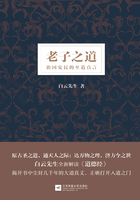The So-Called Costs of Production of Labour Through a very strange error in judgment the classical school of political economy has put forward the proposition that the exchange value of human labour also is determined by costs of production.
The costs of production of human labour -- if we substitute the prosaic personal meaning of this expression for the impersonal and figurative one would be the costs of producing the labourer. What a monstrous idea! Can it be that there is a "production" of labourers in the same sense as there is a production of material things? Has such a thing ever been said even in the darkest ages of barbarism? Surely another name at least might have been chosen. But leaving the name, let us get to the substance.
The substance is, that, by the cost of production of labour is meant the necessary cost of maintaining the labourer and his family; the means of subsistence which the labourers themselves regard as the minimum necessary to keep themselves in life, in strength, and in ability to work, to bring children into the world, and to bring them up to labour. And as the price of goods can never stand permanently either above or below the costs of production, so it is asserted that the wages of labour can never stand permanently either above or below the existence-minimum. Of course, this proposition can never be understood to apply to any but the commonest and worst paid form of labour, seeing that the better paid labour does raise itself above the lowest wage level that can be considered permissible.
On the one side, so far as regards the impossibility of sinking below the minimum, there is, as a fact, a close, indeed a frightful analogy between the law of wage and the law of costs.
Where the labourer has no other income to spend than his wage, wages cannot indeed fall permanently below the amount marked by the prices of the necessary means of subsistence. If the means of subsistence are scarce and dear, a higher wage must ultimately be conceded. Misery and death are the imperious forces which bring about this result, inasmuch as they reduce the number of labourers until the reduced supply has raised wages sufficiently to cover the necessaries of life.
But how is it as regards the other side? Is it true that wages can never rise permanently above the costs of subsistence?
Is there the smallest analogy, or even an apparent analogy, between the pressure exercised by the cognisance of cheaper conditions of production upon the valuation of products, and the pressure which might be exercised upon the valuation of labour by cognisance of cheaper conditions of life? Economists of the classical school assert that there is, and thereby they bring again into the question motives which have as little in common with the considerations that govern the production of goods, as the law of nature, which says that he who can find no means of sustenance must die, has with the considerations that govern the manufacturer who discontinues a business when it fails to return him its costs. The motive which is called upon to prove that wage cannot maintain itself above the minimum of subsistence is the power of the sexual instinct. If means of subsistence become cheaper and more abundant, there is the more room for increase of population, for marrying, producing children, and supporting them. The supply of labourers can go on increasing, and wages go on diminishing, until the maximum of population possible to maintain, and the existence minimum of wage, are again reached.
This result is possible. But must it ever happen? Does it always happen? What has experience to say? It speaks plainly enough --so plainly that even those who assert that the law of costs obtains for labour find themselves forced to add to that law certain clauses which amount to nullifying it. Thus a clause is added which says that what determines wage is that amount of subsistence which the labourers themselves regard as the permissible minimum, since experience shows that the minimum wage differs from time to time, from place to place, and from nation to nation. But this clause cancels the law. If the opinion of the labourer is to be decisive, there can be no more talk of a compulsory, objective, fixed standard of wage. In yet another direction experience speaks still more conclusively. We notice everywhere that the wage for different kinds of labour is of varying amount. Only some of the labourers, and that not by any means the majority, are always held down to the lowest possible wage. But how could this be the case if the whole position of labour were entirely governed by the power of sexual impulse as is asserted? Would not the supply of labour under such a supposition be overwhelmingly large, -- as a rule, and in the long run at all events, -- and wages be reduced to the minimum in all branches of production? Would not all wages be equally low?
The fact that higher wages are continuously maintained in the higher branches of labour, is a clear proof that the height of wage continues to be determined by considerations which are too powerful to admit of their favourable results being suspended by the sexual instinct; or -- what amounts to the same thing -- that the sexual impulse does not possess that destructive power which is ascribed to it. And if it does not possess this as regards one class of labour, it is impossible to see why it should be held necessary as regards the other class.















